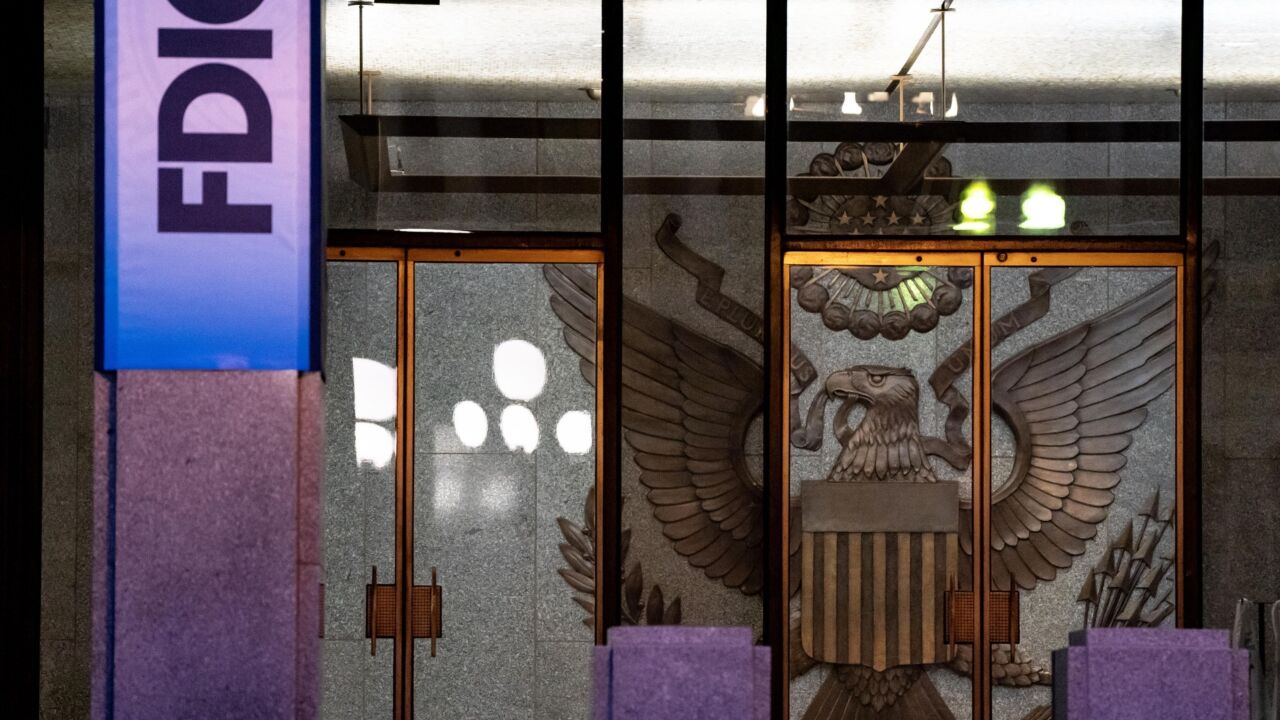
WASHINGTON — The Federal Deposit Insurance Corp. has reached an agreement with Vanguard that will give the bank regulator more oversight of the asset manager's investments in some U.S. banks.
Under the deal, announced Friday, Vanguard will have to file a passivity agreement with the agency when it owns more than 10% of an FDIC-supervised bank. Those agreements will bar the asset management giant from trying to influence banks' behavior, for example by steering them away from financing oil projects.
The agreement goes further than the normal configuration of passive investments in banks. Specifically, Vanguard will be prohibited from influencing the nomination of directors, but the asset manager will still be allowed to vote on shareholder resolutions.
Exerting more oversight power over asset managers that own stakes in banks is a rare FDIC priority that encompasses the interests of both Republican and Democratic board members. Consumer Financial Protection Bureau Director Rohit Chopra last summer
"The FDIC's existing rules include an odd provision that, in practice, eliminates the agency's review of changes in control for many covered transactions," Chopra said at the time. "It is highly inappropriate for the FDIC to abdicate the responsibility Congress entrusted to us to safeguard the ownership and control of the banks we supervise."
Chopra's proposal and another one from Republican FDIC board member Jonathan McKernan were
The tiny community bank handled hundreds of millions of bulk cash shipments from Mexico without red-flagging any of them, the agency said. The bank has filed a motion to dismiss.
"The distinctions between proxy voting, stewardship, and control can be blurry," Hsu said at the time. "Opinions differ as to the impact and effectiveness of passivity mechanisms, such as mirror voting and choice voting."
McKernan has given several speeches about the influence the three largest asset managers — Vanguard, BlackRock and State Street — have over the banks in which they own a more than 10% stake.
"At least with respect to their index funds, the Big Three purport to be merely passive investors, but a growing body of evidence suggests that's not always the case," McKernan
The agreement with Vanguard "should enable the FDIC to address, with respect to Vanguard, the concerns I raised in January and several times since about gaps in the FDIC's monitoring of the purported passivity of the largest index fund complexes," McKernan said Friday in a statement.
McKernan said that the FDIC should also "scrutinize Vanguard's own compliance program."
"It will be critically important that the FDIC periodically assess how Vanguard's front-line business units, independent risk function, and internal audit function monitor, test, and audit its compliance with its related policies and procedures," he said.
The FDIC had given Vanguard and BlackRock a Dec. 31 deadline to sign passivity agreements before the agency could pursue legal action. No signed agreement with BlackRock has been publicly announced.






